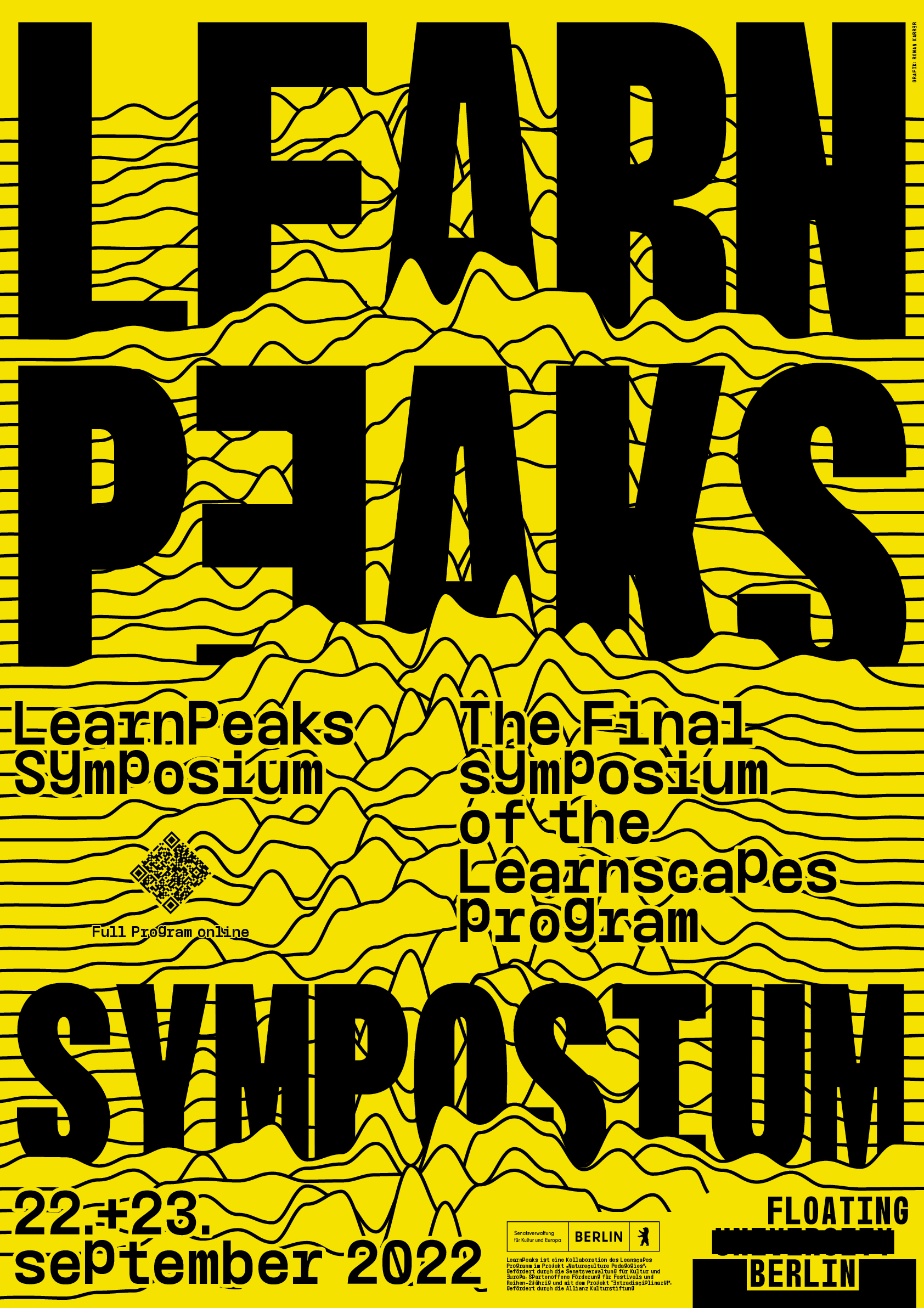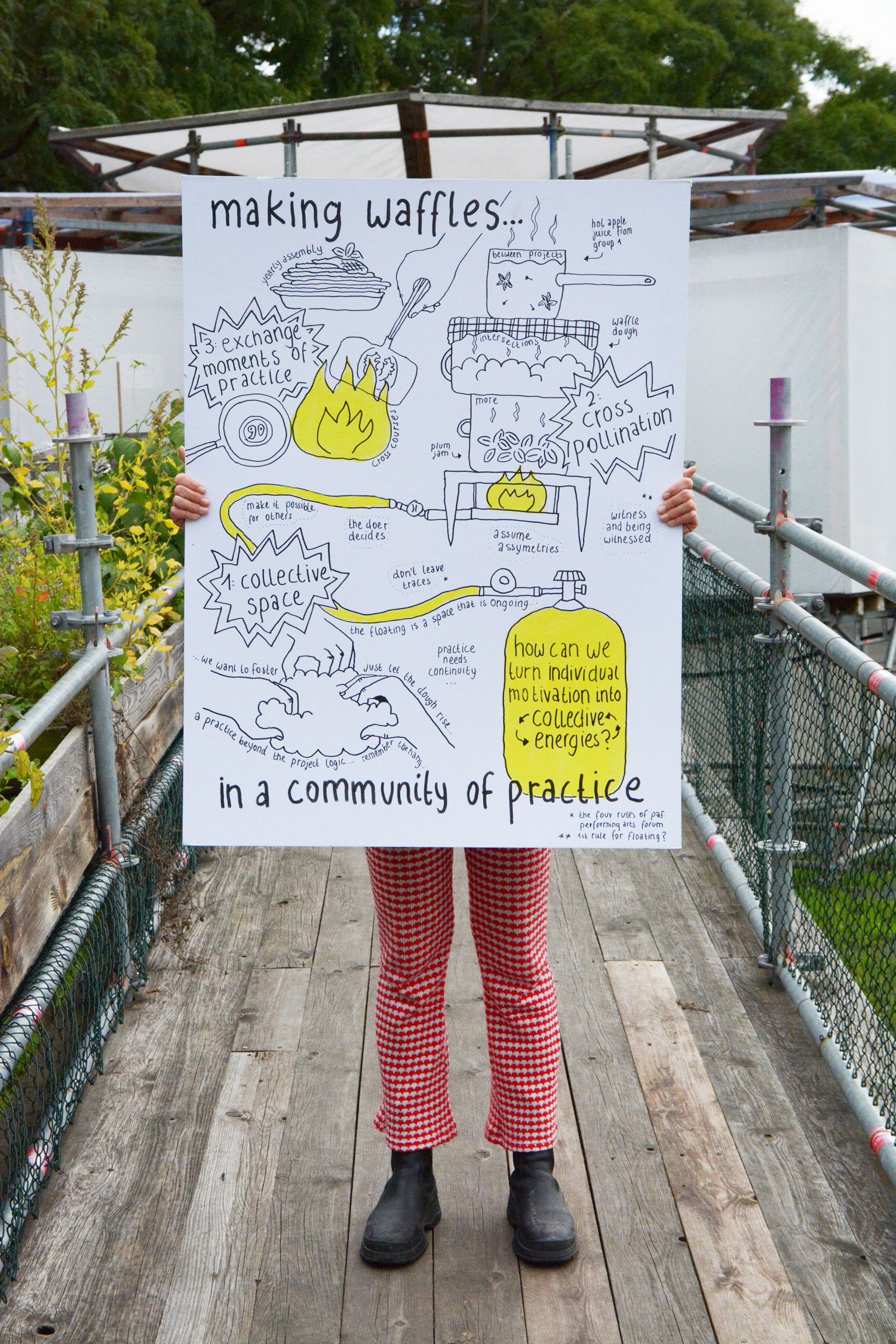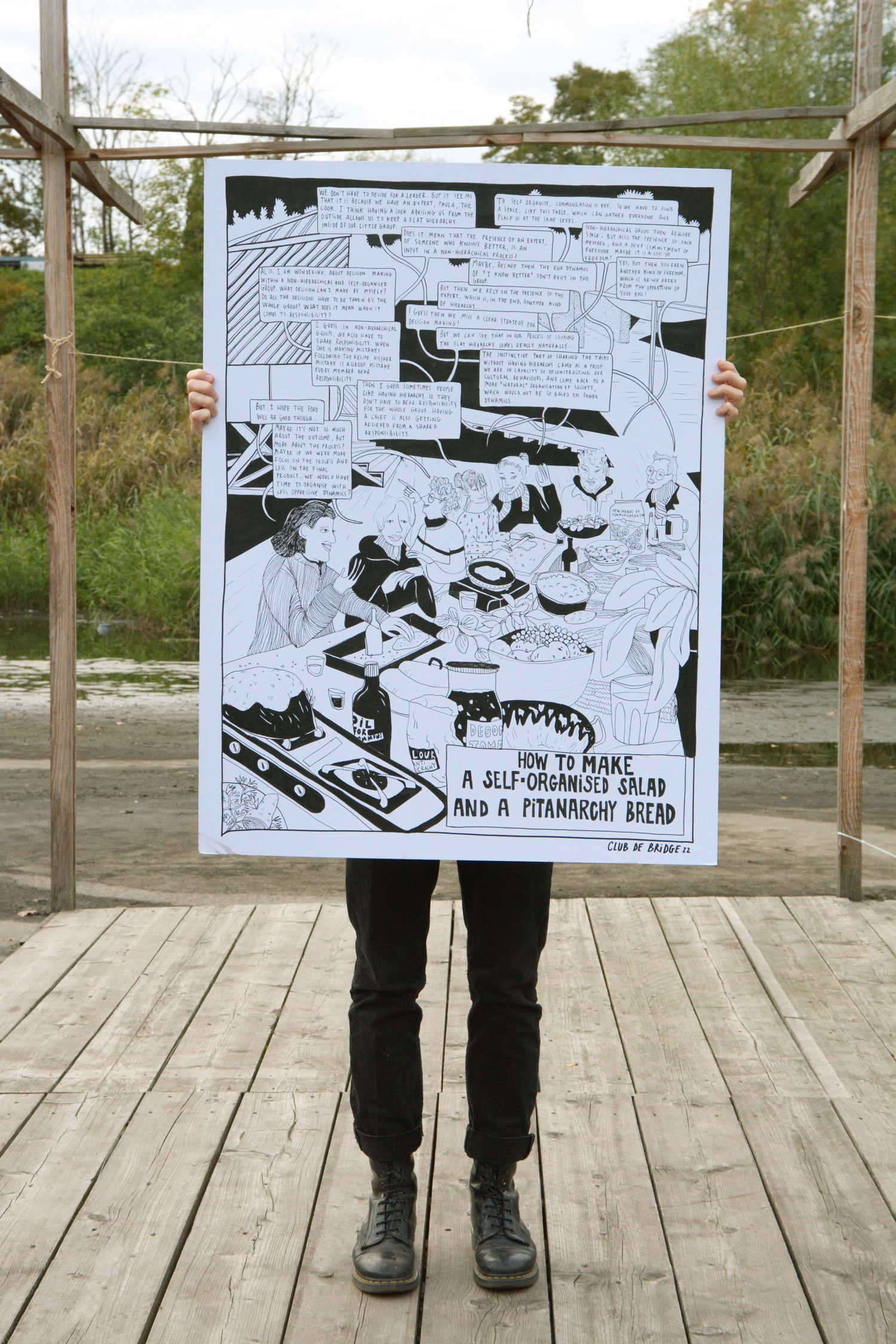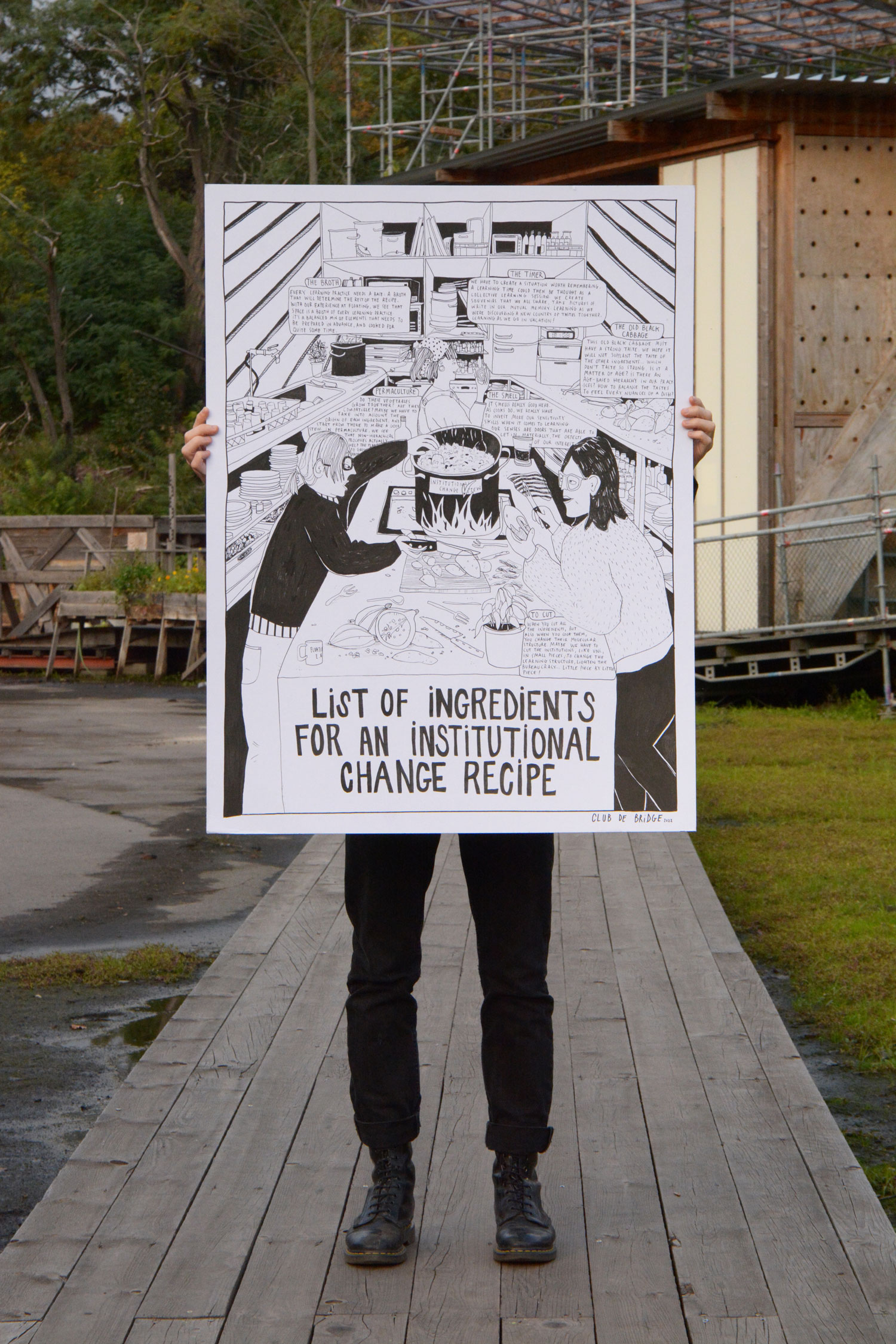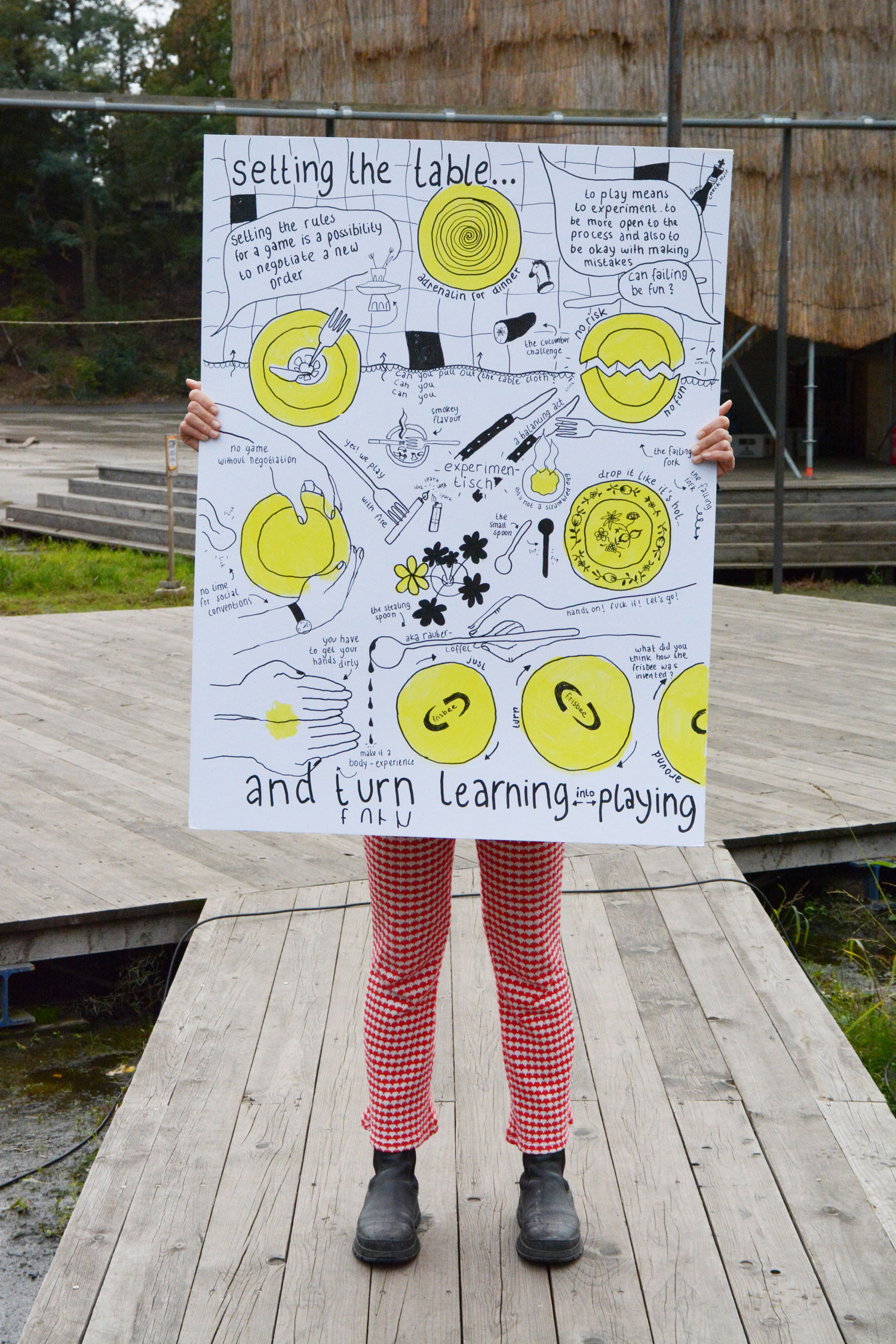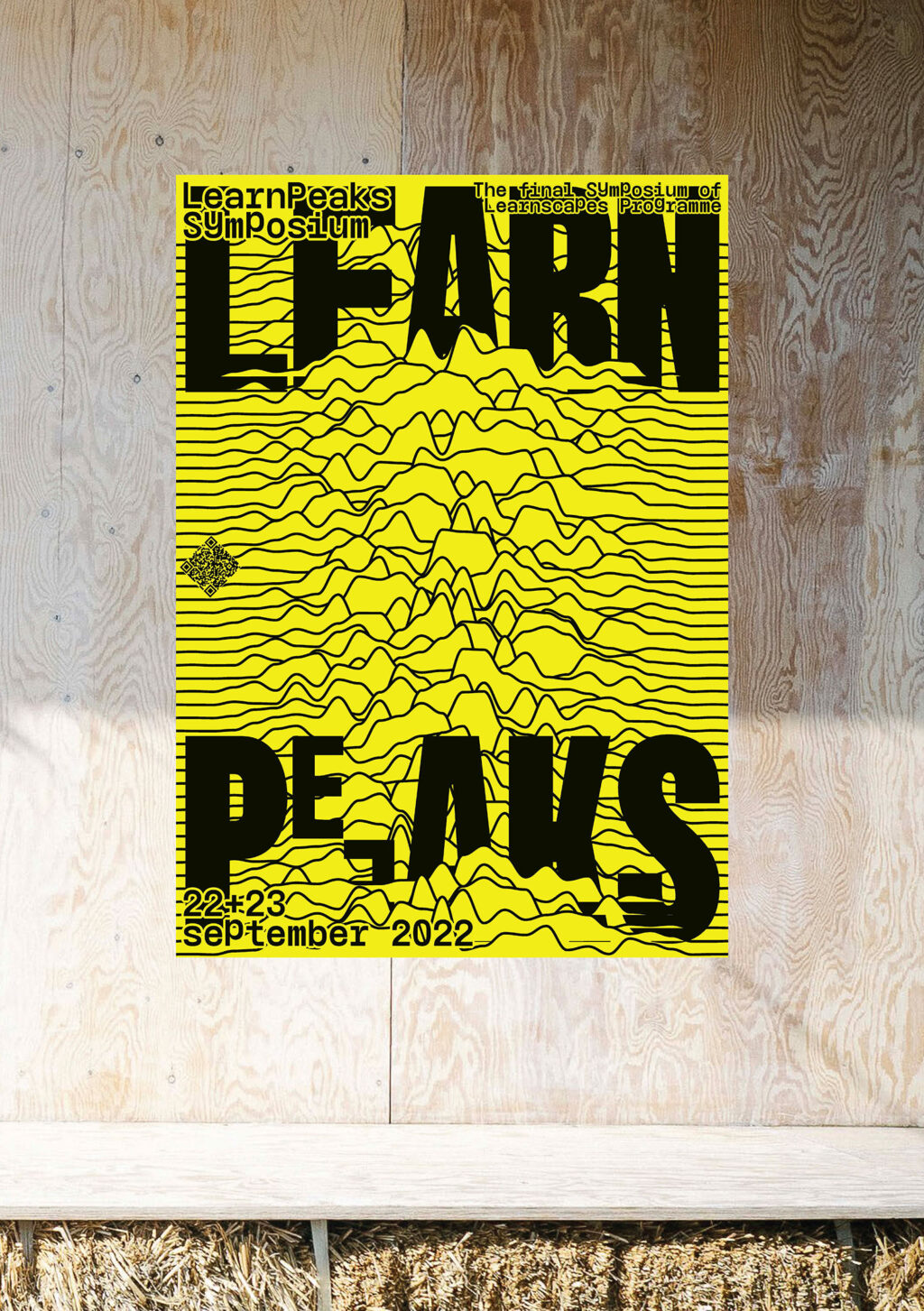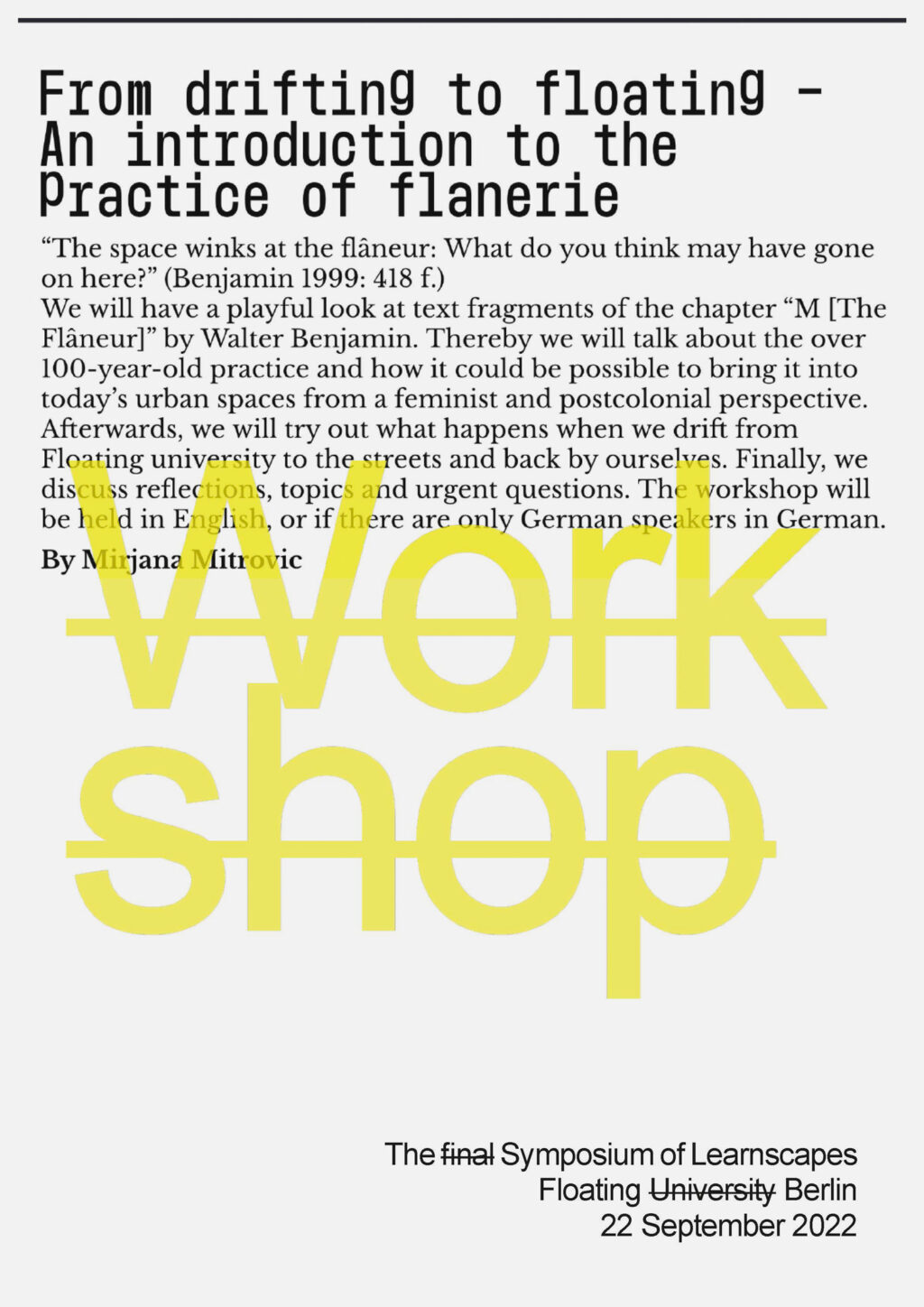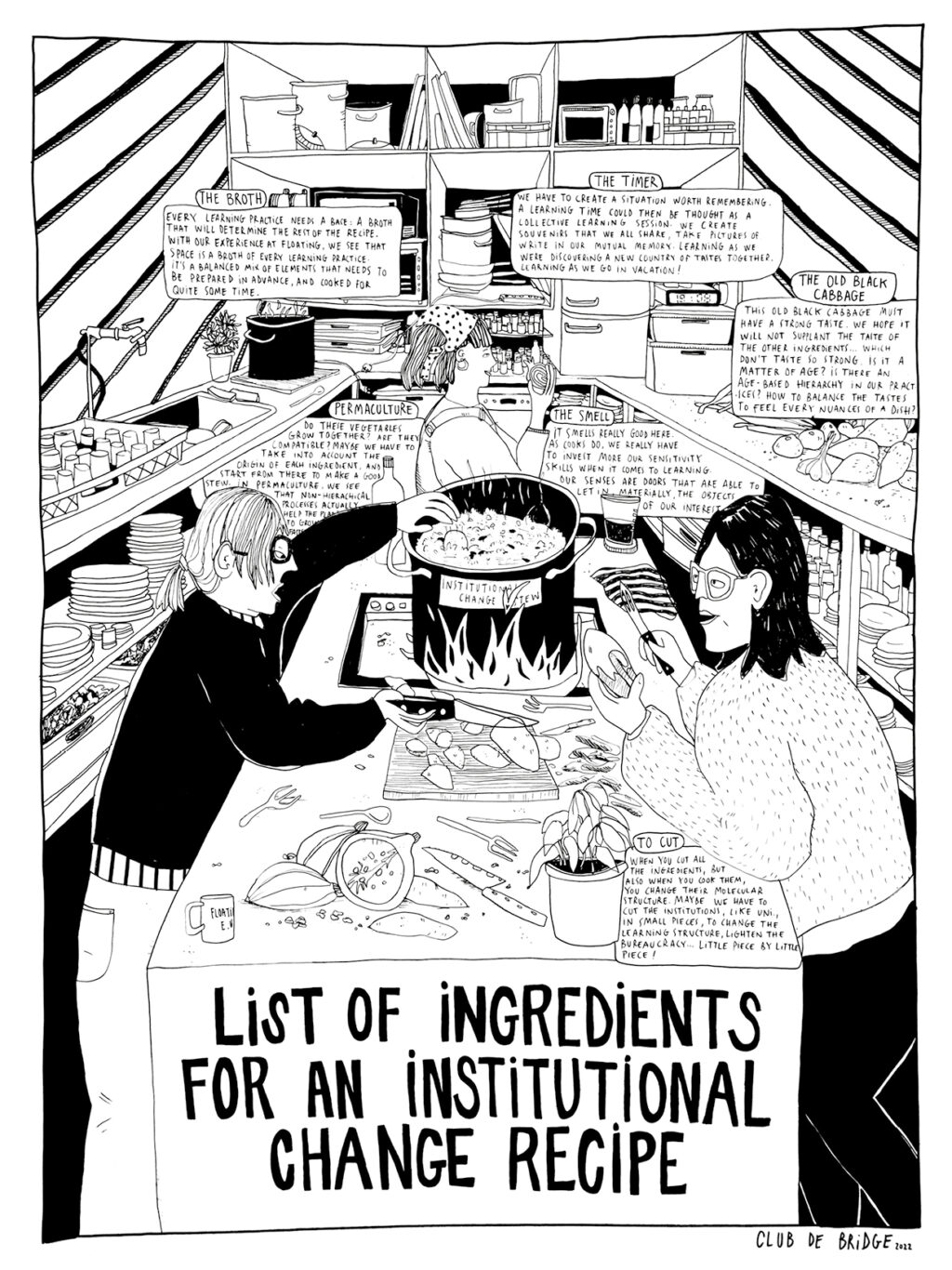LearnPeaks Symposium
The final Symposium of Learnscapes Programme
LearnPeaks Symposium invites past, present and future participants of the Learnscapes Programme for two days of workshops, talks and get-togethers – an opportunity to take a deeper dive into the floating landscapes of knowledge production and practices of un-, co- and re- learning beyond academia.
Invited are all students and teachers, who have taken part in or organised workshops, lectures, seminars, design studios, etc. at Floating University, shaping the Learnscapes network, as well as everyone interested.
The symposium brings people together to exchange thoughts and practices of (un-, co-, re-) learning at Floating University. Students and teachers will offer workshops to each other and the public, an opportunity to dive into their learning experience. Further guests are invited to give lectures about their unconventional learning practices on the threshold of artistic and urban practice – an attempt to contextualise Floating University within a broader discourse.
The symposium is also understood as an act of gathering and a reason to celebrate, while discussing and debating, holding speeches, engaging in formal and informal dialogues. Students and teachers are warmly invited to reflect on their experiences on site at the Discursive Dinner. The collective process of food preparation will be accompanied by food for thought and discussion, with the aim of generating collective knowledge to bring back to one’s own learning practice and environment.
Programme
22. September
(public program)
13:00 Check-In & Snack-In
14:00 Workshops (parallel)
16:00 Workshops (parallel)
17:30 Workshops Wrap Up
19:00 Lecture and Talk Saskia Hebert / subsolar* architektur & stadtforschung; Hochschule für nachhaltige Entwicklung Eberswalde
20:00 Lecture & Talk Andreas Lang / Civic University, Public Works, Central Saint Martins
21:00 Thirsty Thursday
22:00 Closing
23. September
(learnscapes network)
16:00 Discursive Dinner
21:00 Closing
Registration for workshops (public – max 50 people) and dinner (learnscapes network) at learnscapes@floating-berlin.org
WORKSHOPS
(22. September)
Idle Talk
This workshop takes the site of Floating University at the rainwater retention basin of the former Berlin-Tempelhof Airport as a starting point for situated learning. The study circle will explore the field in pairs and small groups, from within its specific environment, material conditions and (historical) context. The session will be concluded with the exchange and collection of “facts”, systems, representations, myths/rumours/metaphors, and imagined futures of the site and possibilities for co-learning. Environmental learning encourages participants to look beyond the often unquestioned ‘facts’, to understand systems that structure and inform ‘reality’, and to develop imaginaries that can drive change towards more socially and environmentally just futures.
The workshop concept for “Idle Talk” is developed by Meike Schalk (KTH School of Architecture, Stockholm / Anna Boyksen Fellow at the TUM – Institute of Advanced Study + Action Archive) & Heidi Svenningsen Kajita (University of Copenhagen + Action Archive). The workshop will be held by Barbara-Rosa Siévi, student of architecture at TUM (Chair of Gossip & Unlearning) and Nelly Binner, student of documentary photography at Hochschule Hannover.
By
Meike Schalk, Heidi Svenningsen Kajita, Barbara-Rosa Siévi, Nelly Binner
14:00-15:30 (Part I)
16:00-17:30 (Part II)
From drifting to floating – An introduction to the practice of flanerie
“The space winks at the flâneur: What do you think may have gone on here?” (Benjamin 1999: 418 f.)
We will have a playful look at text fragments of the chapter “M [The Flâneur]” by Walter Benjamin. Thereby we will talk about the over 100-year-old practice and how it could be possible to bring it into today’s urban spaces from a feminist and postcolonial perspective. Afterwards, we will try out what happens when we drift from Floating university to the streets and back by ourselves. Finally, we discuss reflections, topics and urgent questions. The workshop will be held in English, or if there are only German speakers in German.
By Mirjana Mitrovic
14:00-15:30 (Part I)
16:00-17:30 (Part II)
Die klingende Postkarte
In this workshop we want to create a sound postcard together with the participants from sounds that we record on site at the Floating University with microphones.
From beats made from stones and sticks to music made from raindrops, birdcalls and the sound of the wind to a short radio play – many things are possible. We will be inspired by the objects and sounds we find in the Floating University and get to know a special place from an unusual perspective – through listening.
Feel free to bring your own headphones, if available.
By Linda Furker and Felix Classen
14:00-15:30
Neue Bilder der Natur
Together we search for natural materials, such as leaves, bark patterns and sticks. By printing, stamping and sewing we will create a joint installation that will present nature in new images. What new images of nature will we find?
By Ammar Hatem, Sifan Pan & Lilli Hellmons
14:00-15:30
Hydrophones
The transition from water to air forms a fascinating and at the same time irritating boundary layer. We can physically simply get through it. However, our visual as well as acoustic perception is initially reflected by this boundary layer, we bounce off it. In a workshop we want to explore the perception of this layer, its barriers, its surface, its permeation, to dive into the opposite matter, to develop and build hydrophones, to dive for sounds and to tell about what we have heard.
By Michael Akstaller, Anouk Albrecht, Senta Hirscheider (Quellkollektiv, AdBK Nürnberg)
16:00-17:30
Speculative Storytelling
The artists will offer a workshop about speculative storytelling, based on artistic strategies, they applied for the realisation of their latest film project: „Cloud Alchemy“, 2022 at the Floating Site, Berlin. By implementing performative elements, participants will develop utopian narratives, shifting the focus to a more than human perspective.
By Nina Fischer & el Maroan el Sani
16:00-17:30
DISCURSIVE DINNER
(23. September)
The Discursive Dinner is an invitation to all past, present and future learners at Floating University – students and teachers alike. Together, we will cook and discuss, prepare the meals and set the table, hold speeches and dine.
At four cooking stations, participants are invited to prepare a meal, while reflecting on their experiences at Floating, searching for common ground and discussing different aspects of experimental learning practices and spaces. Four questions, which evolved in co-creative meetings with interested participants earlier this summer, will serve as a starting point for discussion. The outcome of each discussion will be graphically recorded, so that the generated collective knowledge can be brought back to one’s own learning practice and environment.
The discursive food preparation will be followed by dining together and sharing food for thought. Before each course, the groups are invited to present their meal and outcomes.
16:00 Introduction
16:30 Discursive food preparation
18:30 Spotlight: How to turn learning into playing?
Toast
18:40 Spotlight: How to self-organise non-hierarchically?
18:50 Appetiser
19:20 Spotlight: What institutional change do we need?
19:30 Main course
20:30 Spotlight: How can we foster a learning community practice?
20:40 Dessert
21:00 Closing
Discursive stations:
#1 How to turn learning into playing?
(table setting)
The first group gathered around the question “How to turn learning into playing?” and transformed the setting of the discursive dinner into a learning playground. Setting the table turned into a playful learning exercise – the participants got to know some tricks through practice and approached the content of the discussion not by theorising it, but through practical experimentation, combining great fun with new skills.
#2 How to self-organise non-hierarchically?
(appetiser)
The appetiser group talked about flat and non-hierarchies while cooking, cutting and making group decisions, preparing several salads and pita bread. The group did not vote on a leader who decides how to prepare the appetisers, but rather listened to Paula’s (the cooking expert) advice, which made the process of food preparation very natural, non-hierarchical and democratic. The cooks agreed that their goal is not to produce the perfect outcome but to form the way of working together. The group developed a system of taking decisions by formulating a question that needs to be answered – e.g. how big to cut the salad leaves – and leaving another person to decide. The act of cooking questioned pre-existing structures, responsibilities and hierarchies that are normally being performed and reproduced.
#3 Learning from Floating – what institutional change do we need?
(main course)
The starting point of the discussion around the main course was the physical experience of the Floating learnscapes that helps the cognitive process. The cognitive mapping of the site, linked to physical experiences, discovers new, more diverse points of view. The circumstances – being exposed to weather conditions, but also being in a new setting, in a different environment from the well known institutional spaces – welcome students to create their own learnscapes, to appropriate, design and shape their new learning spaces, to follow desires e.g. to go out instead of sitting inside in summer. How can this spirit be brought back to the institutions? Architecture needs to change towards more flexibility and temporality. Space is the third pedagog after the teacher and the students. Both the physical and institutional architecture of universities create expectations that students need to succeed and some may feel trapped by that. There is thus need for more flexible and temporal spaces that support alternative learning practices.
#4 How can we foster a learning community practice?
(dessert)
Starting point of the discussion was the understanding of practice as the opposite of a project. Teachers and student groups isolate themselves in the comfort of their project work, defined by a semester. What could enable a practice that allows to go beyond the project boundaries? A practice needs continuity and a community. The group looked at Floating and their experiences on site. The way courses and design studios are run can be understood as project making, whereas Floating itself is an ongoing place. A community of practice is understood not as the process of generating disciplinary knowledge (e.g. how to design a building), but as an embodied position and a network of people. The group defined three steps towards a community of practice – (1) a collective space that is open in which to assemble; (2) cross-pollination (creating moments of exchange for different learning groups); (3) deliberately exchanging moments of practice. The group further developed two proposals: cross-courses designed to deliberately intersect and a yearly assembly (of the learnscapes network). A good reference was PAF – Performing Art Forum – a completely self-organised forum based on four rules : 1. Make it possible for all. 2. Don’t leave traces. 3. The doer decides. 4. Assume asymmetries. With this in mind, new motivations and intentions for next year were expressed, how to turn the Learnscapes network into a community of practice. Stay tuned..
